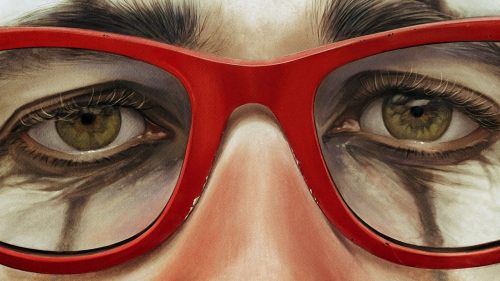Twin Cities Film Fest Review: HONEY BOY Is Therapy Through Exhibition
Art is often reflective of the attitudes and experiences of the artists who create it, but films are rarely so purely autobiographical as Honey Boy. Written by Shia LaBeouf during his time in rehab, Honey Boy is a thinly-veiled fictionalization of his time as a child actor, acting as a study of LaBeouf’s father in which LaBeouf literally embodies his father’s character. It’s indulgent and hamstrung by the normal issues that hamper many actor-written productions, namely in that it’s written to emphasize performance over narrative, but in this instance, with this actor and this story, that feels less like a bug than a feature. It’s like sitting in on a voyeuristic therapy session, and though that knowledge can make the experience extremely uncomfortable, it serves its purpose in allowing LaBeouf to use his craft in processing his lifelong pain.
The bulk of the story focuses on 12-year-old Otis (Noah Jupe) as he works as a child actor while living with his alcoholic father, James (LaBeouf). Otis loves his father, and the fast-talking veteran huckster is certainly not without his charisma, but James is prone to extreme mood swings that he uses as an excuse to punish Otis with verbal and physical abuse. These swings create friction when Otis points out factual errors in his father’s bullshit advice, when Otis’ sponsor in the Big Brother program (Clifton Collins Jr.) threatens James’ sense of being a good father, and when Otis develops feelings for the teenage girl across the motel parking lot (FKA Twigs). And unfortunately, that leaves Otis with the monumental task of navigating his father’s unpredictable moods in order to maintain a relationship, even as that relationship actively harms him in ways that he won’t fully realize for years.
Jupe is a fantastic lead, directed by Alma Har’el to portray Otis as simultaneously strong-willed and desperate for approval, deferential to James’ ego while adolescently pushing against the boundaries that James’ anger creates. But LaBeouf steals the show away from his younger self, painting a portrait of his father that is sympathetic to the pain that his father experienced and unflinchingly blunt about the pain his father inflicted upon him. It’s a nuanced portrayal that allows LaBeouf to embody his father’s ranting diatribes to nearly excessive effect, but it works in the context of LaBeouf coming to terms with the humanity of a man he claims left him with nothing but pain. It’s a form of therapy through performance that uses LaBeouf’s skillset to exorcise his demons. It can be hard to watch when James is at his worst, but the power behind the performance is undeniable.
This has the side effect of weakening the film’s framing device, which finds 22-year-old Otis (Lucas Hedges) in court-ordered rehab and finally tracing the roots of his own substance abuse back to his father. Hedges is comfortable as ever in the role of the troubled young adult, angry and confused by that anger in equal measure, but for how much the film cuts back to the older Otis’ sessions, it doesn’t hold much more significance than dramatizing LaBeouf’s own stay in rehab. This largely becomes clear in retrospect as the framing device anti-climaxes immediately after the younger Otis’ story resolves. Otis delivers a line in voiceover about how recognizing his issues is only the first step in reconciling them, so perhaps the lack of resolution is part of the point and is reflective of where LaBeouf still remains emotionally, but it ultimately makes the rehab portions feel even more indulgent than James’ portrayal, to the point of unwieldy excess.
Honey Boy almost feels too personal to critique, too wrapped up in LaBeouf’s process of parsing out his father’s harmful actions from the harm that made father his father the way he was. Maybe that makes this film less suitable as a piece of commercial filmmaking than as a personal expression of LaBeouf's growth and self-reflection. It feels wrong to be given so much raw exposure to a person’s actual suffering at the hands of another. But that’s what Honey Boy has to offer, and it offers it unreservedly. LaBeouf imagines himself as his father to grasp his dual understandings of the man, and it makes that conflicted image congeal into a revelation of how he can move forward. I sincerely hope the process of making this film gave him a measure of the closure he was searching for.



